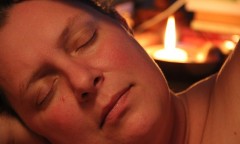By KM Diaz, | March 27, 2017

Insomnia affects about one out of three people, particularly common among elderly.
Insomnia is difficulty of getting enough sleep or staying asleep for long hours that leads to feeling tired the next day. Although there are things that trigger the disorder like physiological, there are also several reasons why people tend to have the sleeping disorder.
According to different reports from New England Journal of Medicine in 2008 and American Journal of Cardiology in 2013, there is a small spike of car accidents when Daylight Saving Time (DST) begins during March.
Like Us on Facebook
In the UK, insomnia affects about one out of three people, particularly common among elderly. Those who have the disorder find it hard to fall asleep, wake up numerous times during the night, lie awake for long periods at night, wake up early in the morning and not be able to get back to sleep, and tend to be irritable which results to poor concentration.
Researchers are looking for further explanations as to why people don't get enough sleep every night. These seven reasons may be the cause why people have insomnia.
Taking thyroid medication at night
The body tend to be more active if thyroid medication used in the night. When the thyroid hormones pump out, people naturally feel energized and refreshed. The medication should be taken first thing in the morning on an empty stomach.
Methylation
Methylation is a chemical pathway in the body. It produces and breaks down neurotransmitters like epinephrine which causes stimulation, and melatonin which is the major sleep hormone. If the methylation pathway is cramped, it could lead to insomnia, and other conditions like agitation, seizure, panic attacks, combativeness, and other stimulating problems.
Quinolinic acid
Quinolinic acid is a neurotoxin that is naturally made by the brain; the production may increase due to some reasons. An example of excessive production of quinolinic acid is when a person uses a particular type of sleep supplements like tryptophan. Too much quinolinic acid contributes to insomnia. It also increased the risk of depression and suicidal attempts.
Fluoride
Using fluoride-containing antidepressants or drinking tap water may somehow harm the pineal glands since it produces the melatonin. The production of melatonin declines as people age, in which, too much fluoride will make a huge impact in the melatonin production.
Prescription medications
Some medications may also trigger insomnia. Some of the worst offenders include the steroid, albuterol, metoclopramide, modafinil, pseudoephedrine, and ciprofloxacin.
Chronic pain
According to The National Sleep Foundation that surveyed Sleep in America poll surveyed in 2015, nearly 36 percent of people who do not get enough sleep are due to chronic pain than those who do not have chronic pain with 65 percent.
Allergies
Sinus congestion, itchy eyes, and frequent sneezing because of dust or pollen allergies can keep a person awake. One way to improve sleep is to keep the bedding and pillows allergen-free and close the windows when the pollen count is high.
-
Use of Coronavirus Pandemic Drones Raises Privacy Concerns: Drones Spread Fear, Local Officials Say

-
Coronavirus Hampers The Delivery Of Lockheed Martin F-35 Stealth Fighters For 2020

-
Instagram Speeds Up Plans to Add Account Memorialization Feature Due to COVID-19 Deaths

-
NASA: Perseverance Plans to Bring 'Mars Rock' to Earth in 2031

-
600 Dead And 3,000 In The Hospital as Iranians Believed Drinking High-Concentrations of Alcohol Can Cure The Coronavirus

-
600 Dead And 3,000 In The Hospital as Iranians Believed Drinking High-Concentrations of Alcohol Can Cure The Coronavirus

-
COVID-19: Doctors, Nurses Use Virtual Reality to Learn New Skills in Treating Coronavirus Patients













